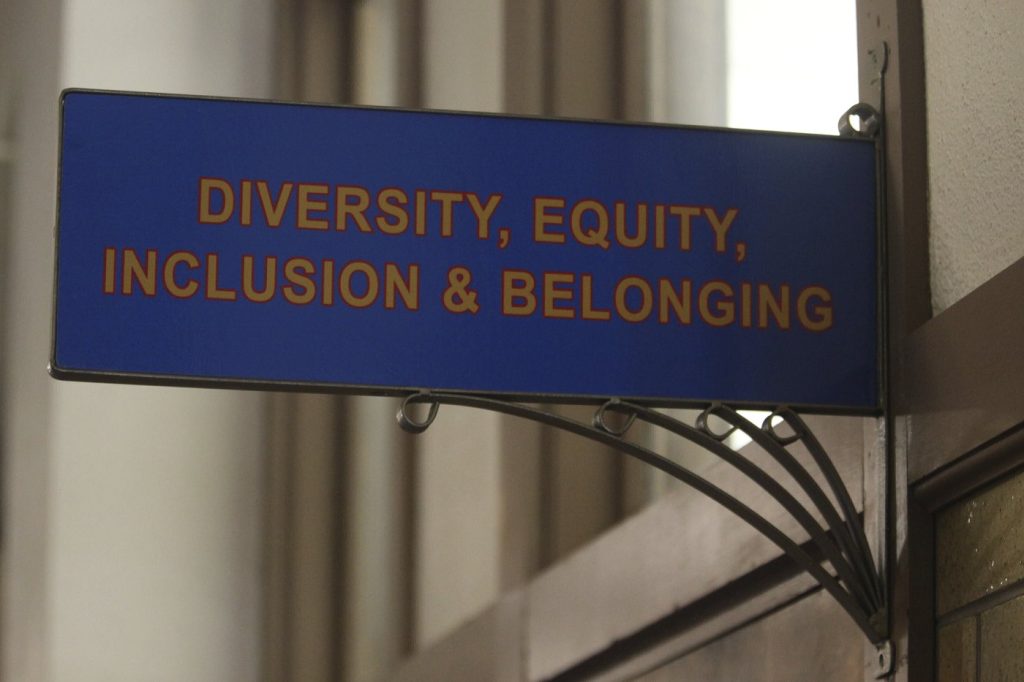JEFFERSON CITY, Mo. (AP) — Republican-led states are increasingly intensifying their efforts to eliminate diversity, equity, and inclusion (DEI) initiatives, marking a significant shift from higher education to various government functions. This movement gained momentum following President Donald Trump's full endorsement of similar initiatives, associated with executive orders aimed at halting DEI programs across the federal government, universities, and schools. Despite facing legal challenges, these efforts have been embraced by state legislators, with actions targeting DEI initiatives almost doubling from the previous year.
An analysis by the Associated Press, supported by bill-tracking software, reveals that governors and lawmakers have taken approximately twice as many actions against DEI programs in 2024 compared to 2023. Shaun Harper, a professor at the University of Southern California and founder of the National DEI Defense Coalition, noted that Trump's attacks on DEI have acted as a catalyst for conservative legislators at the state level, allowing the anti-DEI movement to proliferate nationwide.
State-level strategies often follow a four-pronged plan promoted by conservative think tanks, including the Manhattan Institute and the Goldwater Institute. Initially aimed at higher education, these legislative models seek to abolish DEI offices and staff, end mandatory diversity training, ban compulsory diversity statements, and restrict racial or sexual preferences in hiring and admissions. The current focus has expanded to also affect state and local governments, demonstrating a concerted effort to eliminate DEI initiatives from public sector operations.
DEI initiatives aim to address systemic inequalities in society, benefiting a diverse range of communities. Proponents argue that these initiatives help individuals navigate multicultural environments and foster mutual understanding among various racial, gender, sexual orientation, and disability groups. Many DEI offices provide tailored services for specific groups, promote equity in hiring practices, and factor diversity into admissions processes to better reflect societal demographics.
While the term "DEI" has become politically contentious for some Americans, recent polling shows that support for certain aspects of DEI initiatives remains. About 40% of Americans expressed support for DEI programs in higher education, while approximately 30% opposed them. There is stronger backing for specific components like anti-racism courses and scholarships aimed at students of color, underscoring a nuanced viewpoint within the electorate.
The Biden administration required DEI goals in various government programs, which were subsequently reversed under Trump's leadership. The continued repeal of DEI initiatives accelerated after the Supreme Court's 2023 decision to strike down affirmative action in college admissions. Many businesses have also begun to voluntarily withdraw from DEI programs as Trump re-emerges in the political spotlight.
State laws aimed at defining DEI initiatives vary widely. Most legislative measures focus on race, ethnicity, gender, or sex, with some states, like Oklahoma and Wyoming, narrowing their definitions to exclude individuals receiving preferential treatment based on these factors. However, these measures often overlook other communities, such as persons with disabilities or low-income individuals, suggesting a targeted framing that can demonize certain populations.
Legislative actions in states such as Missouri and Oklahoma have recently expanded the scope of anti-DEI laws, bringing the total number to approximately two dozen since 2023. These include restrictive measures passed in Arkansas, Idaho, Kentucky, Mississippi, Ohio, Tennessee, West Virginia, and Wyoming, indicating a broader nationwide trend. Missouri exemplifies this growth; an anti-DEI provision was initially excluded from the state budget last year but was later reinstated through an executive order from new Republican Gov. Mike Kehoe, which limits state funding for DEI efforts.
Governors have been actively issuing directives to combat DEI initiatives. Since taking office, West Virginia's Gov. Patrick Morrisey implemented an order halting DEI activities that grant preferential treatment based on race or gender, and Indiana's Gov. Mike Braun followed with a similar mandate. Texas was one of the first states to target DEI funding in higher education, with Gov. Greg Abbott expanding his orders to enforce a color-blind approach to state policies.
Legislation against DEI in Idaho not only prohibits DEI offices and programs in higher education but also restricts the inclusion of DEI-related courses in academic curricula unless related to specific fields of study. Advocates hope that other states will adopt similar measures, suggesting a continuing trend toward the elimination of DEI initiatives in education and government. As the push against DEI intensifies, the landscape of higher education and public policy continues to evolve in response to these legislative efforts.










